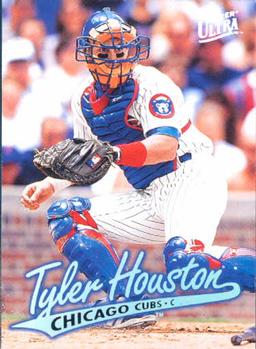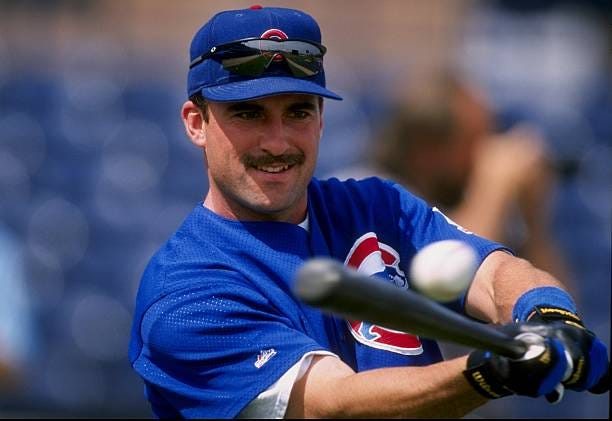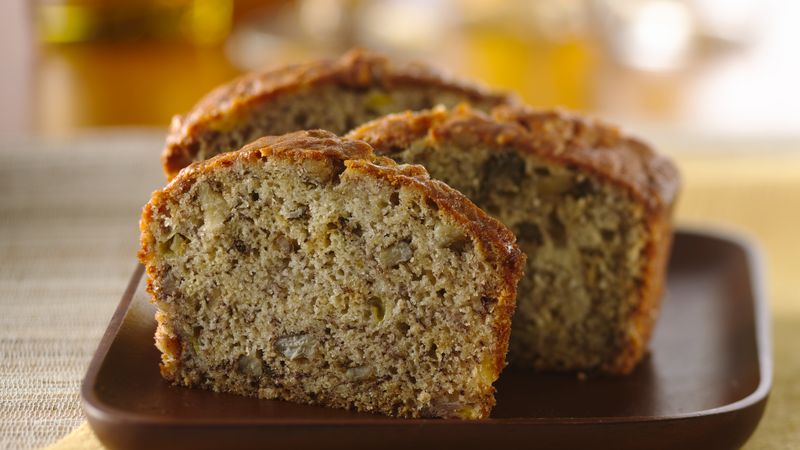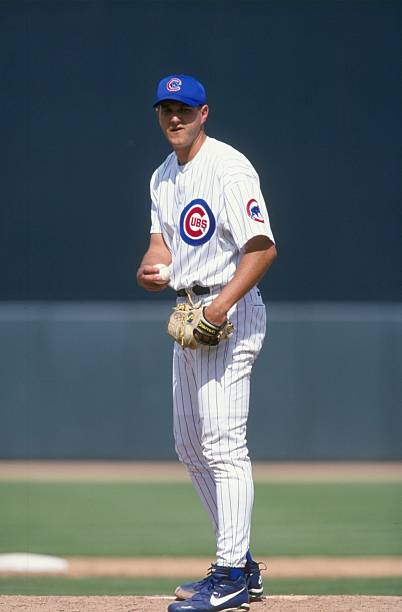18. Geremi Gonzalez
Geremi, or Jeremi, Gonzalez depending on who you ask was a hot young pitcher for the Cubs in the late 1990s. He made his debut in 1997 and won 11 games while posting a very respectable 4.25 ERA. Hopes were high going into 1998 as him repeating that performance would turn him into a reliable part of the rotation, and considering his youth, there was plenty of opportunity for improvement.
Things did not start well for Gonzalez. In his first start of the season, he faced seven batters, and all seven of them reached base, with four walks and three hits, including a home run from Gary Sheffield. The only good news is that Amaury Telemaco only let two of the three inherited runners score.
After that, Gonzalez turned things around as his ERA dropped in each of his next six starts. During that span, he struck out 10 Dodgers in seven innings and ended that streak with a complete game shutout of the San Francisco Giants. His ERA was at a respectable 4.38, and it looked like he might be ready to take that step forward this year.
He would give up 8 runs in his next start which lasted all of 1.2 innings, and his ERA would remain in the fives for the rest of the season. He managed to stay in the rotation until the end of July before the Cubs were forced to make a change. None of those changes really worked out either, but it was change for the sake of change at that point. Gonzalez ended the season with 20 starts, 110 innings, a 5.32 ERA, but with a 4.60 FIP so he was slightly unlucky in his results.
Despite being just 23 years old in 1998, he would not pitch in the majors for the Cubs again, and due to injuries, it took him until 2003, with the Tampa Bay Devil Rays, to reappear at the major league level. He put up an ERA under 4.00 while starting 25 games, but those were his last moments of glory as he struggled tremendously after that year with the Rays, followed by stints with the Red Sox, Mets, and Brewers. The Cubs only knew him as Jeremi, because he didn't tell anyone that the proper spelling of his name was Geremi until he was with the Brewers in 2006.
His life ended tragically in 2008 when he was struck by lightning on a beach in his home country of Venezuela. He was just 33 years old. Geremi Gonzalez didn't have a huge impact on the Cubs, but he was a big deal at the time. The Cubs simply didn't have real pitching prospects for the 12 years between Greg Maddux's and Kerry Wood's debut. The most exciting guys are probably Shawn Boskie, Kevin Foster, and Gonzalez. He was young, promising, and gave hope during a hopeless time. No, due to command issues, he wasn't great in 1998, but I will always think of him in a fonder way than any statistics could justify, and unjustified love is probably the best thing about sports.
In case you missed it:
Introduction
#47 - Matt Karchner
#46 - Jose Nieves
#45 - Rodney Myers
#44 - Justin Speier
#43 - Tony Fossas
#42 - Kennie Steenstra
#41 - Chris Haney
#40 - Bob Patterson
#39 - Pedro Valdes
#38 - Derrick White
#37 - Ben Van Ryn
#36 - Terrell Lowery
#35 - Don Wengert
#34 - Kurt Miller
#33 - Jason Maxwell
#32 - Kevin Foster
#31 - Mike Morgan
#30 - Felix Heredia
#29 - Jeff Blauser
#28 - Jason Hardtke
#27 - Dave Stevens
#26 - Manny Alexander
#25 - Marc Pisciotta
#24 - Kevin Orie
#23 - Sandy Martinez
#22 - Terry Adams
#21 - Matt Mieske
#20 - Amaury Telemaco
#19 - Tyler Houston
Geremi, or Jeremi, Gonzalez depending on who you ask was a hot young pitcher for the Cubs in the late 1990s. He made his debut in 1997 and won 11 games while posting a very respectable 4.25 ERA. Hopes were high going into 1998 as him repeating that performance would turn him into a reliable part of the rotation, and considering his youth, there was plenty of opportunity for improvement.
Things did not start well for Gonzalez. In his first start of the season, he faced seven batters, and all seven of them reached base, with four walks and three hits, including a home run from Gary Sheffield. The only good news is that Amaury Telemaco only let two of the three inherited runners score.
After that, Gonzalez turned things around as his ERA dropped in each of his next six starts. During that span, he struck out 10 Dodgers in seven innings and ended that streak with a complete game shutout of the San Francisco Giants. His ERA was at a respectable 4.38, and it looked like he might be ready to take that step forward this year.
He would give up 8 runs in his next start which lasted all of 1.2 innings, and his ERA would remain in the fives for the rest of the season. He managed to stay in the rotation until the end of July before the Cubs were forced to make a change. None of those changes really worked out either, but it was change for the sake of change at that point. Gonzalez ended the season with 20 starts, 110 innings, a 5.32 ERA, but with a 4.60 FIP so he was slightly unlucky in his results.
Despite being just 23 years old in 1998, he would not pitch in the majors for the Cubs again, and due to injuries, it took him until 2003, with the Tampa Bay Devil Rays, to reappear at the major league level. He put up an ERA under 4.00 while starting 25 games, but those were his last moments of glory as he struggled tremendously after that year with the Rays, followed by stints with the Red Sox, Mets, and Brewers. The Cubs only knew him as Jeremi, because he didn't tell anyone that the proper spelling of his name was Geremi until he was with the Brewers in 2006.
His life ended tragically in 2008 when he was struck by lightning on a beach in his home country of Venezuela. He was just 33 years old. Geremi Gonzalez didn't have a huge impact on the Cubs, but he was a big deal at the time. The Cubs simply didn't have real pitching prospects for the 12 years between Greg Maddux's and Kerry Wood's debut. The most exciting guys are probably Shawn Boskie, Kevin Foster, and Gonzalez. He was young, promising, and gave hope during a hopeless time. No, due to command issues, he wasn't great in 1998, but I will always think of him in a fonder way than any statistics could justify, and unjustified love is probably the best thing about sports.
In case you missed it:
Introduction
#47 - Matt Karchner
#46 - Jose Nieves
#45 - Rodney Myers
#44 - Justin Speier
#43 - Tony Fossas
#42 - Kennie Steenstra
#41 - Chris Haney
#40 - Bob Patterson
#39 - Pedro Valdes
#38 - Derrick White
#37 - Ben Van Ryn
#36 - Terrell Lowery
#35 - Don Wengert
#34 - Kurt Miller
#33 - Jason Maxwell
#32 - Kevin Foster
#31 - Mike Morgan
#30 - Felix Heredia
#29 - Jeff Blauser
#28 - Jason Hardtke
#27 - Dave Stevens
#26 - Manny Alexander
#25 - Marc Pisciotta
#24 - Kevin Orie
#23 - Sandy Martinez
#22 - Terry Adams
#21 - Matt Mieske
#20 - Amaury Telemaco
#19 - Tyler Houston









